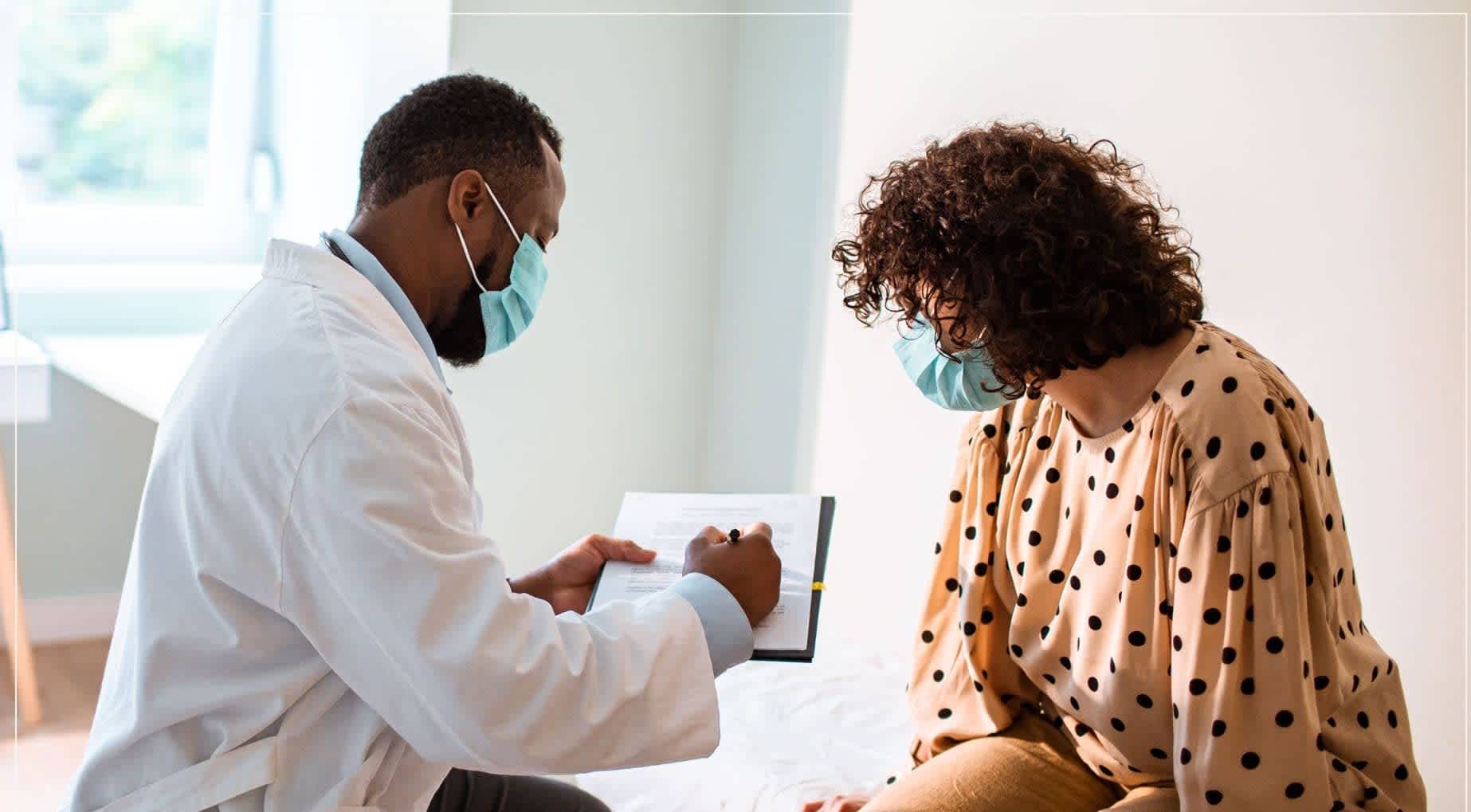
Chlamydia during pregnancy: what you need to know
Medically reviewed on February 15, 2022 by Jordan Stachel, M.S., RDN, CPT. To give you technically accurate, evidence-based information, content published on the Everlywell blog is reviewed by credentialed professionals with expertise in medical and bioscience fields.
Chlamydia is a sexually transmitted infection that affects about three million Americans every year. While it can have some severe symptoms that affect many, it may also lead to additional complications if pregnant. Learn more about chlamydia and pregnancy — and whether you should consider an at-home chlamydia test — below.
What is Chlamydia?
Chlamydia trachomatis, simply known as chlamydia, is a sexually transmitted infection caused by a bacterium [1]. While it can infect anyone of any gender, it is the most common in young women. It can affect the genitals, anus, throat, and eyes.
The bacteria that cause a chlamydia infection can spread through anal, vaginal, and/or oral sex, primarily through the fluids secreted. This includes vaginal fluids, semen, and pre-cum, though the infection can spread even without cum. In rare cases, eye infection can occur if there are infected fluids on the hands that touch the eyes.
A chlamydia infection, specifically, only spreads via sexual contact, meaning that you can’t get it or spread it through casual contact. Casual contact includes hugging, kissing, sharing food, or holding hands. Also, you can’t get it or spread it from coughing or sneezing, and you can’t get it from sitting on a toilet seat.
Symptoms of Chlamydia
Much like other STIs, chlamydia can be tricky because it often doesn’t present with any noticeable symptoms. Symptoms that appear are also easy to mistake for something else. That is part of why it is so easy to spread a chlamydia infection.
Symptoms of STDs in women and men can range in severity. If you do experience symptoms, they can occur several weeks after the initial exposure. The most common signs and symptoms of chlamydia include:
- Pain or burning when urinating
- Abnormal genital discharge
- Pain when having sex
- Bleeding between periods (spotting) and after sex
- Testicles that feel tender and swollen
- Rectal pain, bleeding, or discharge
The severity of these symptoms will vary, though for most people, they are often mild. Untreated chlamydia can result in some severe issues. The infection can potentially spread to the uterus and/or fallopian tubes, resulting in pelvic inflammatory disease. This can lead to permanent damage to the cervix, ovaries, fallopian tubes, and uterus. Scarring and other damage to these areas can potentially result in infertility.
Related: Can chlamydia come back after treatment?
Chlamydia and Pregnancy
If you have chlamydia while pregnant, you may have a higher risk of certain birth complications [2]. Chlamydia has been linked to preterm labor, low birth weight, and premature rupture of membranes.
Mothers can potentially pass chlamydia to their babies during birth, which is known as perinatal transmission. The infection can potentially result in chlamydial conjunctivitis or chlamydial pneumonia [3].
The good news is that chlamydia is easy to treat, even during pregnancy. It often only takes a round of oral antibiotics to eliminate the infection from the body.
Chlamydia is easy to treat but hard to detect, which is why expectant mothers should get tested for chlamydia during their first prenatal appointment. This may not be standard, but you can typically ask your healthcare provider for STD testing without any problems. You can also try the Everlywell at-home STD test, which can detect chlamydia and six other common STDs. This can protect you, your partner, and your baby, ensuring everyone’s good health.
References
1. Chlamydia trachomatis - Symptoms and causes. Mayo Clinic. URL. Accessed February 15, 2022.
2. STDs and pregnancy: Get the facts. Mayo Clinic. URL. Accessed February 15, 2022.
3. Chlamydia During Pregnancy. American Pregnancy Association. URL. Accessed February 15, 2022.
